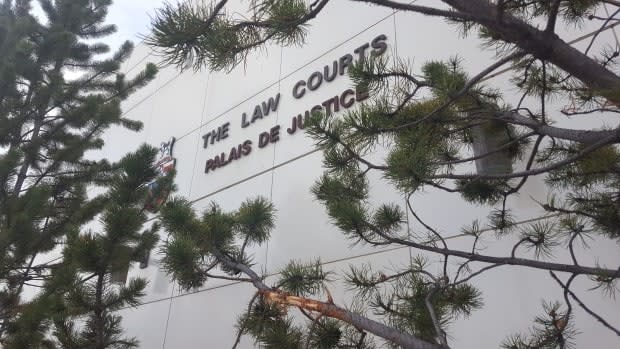Judge rules in favour of Yukon government seeking money for mine cleanup
The Yukon government should be first in line for any money from the bankrupt Yukon Zinc Corporation to help cover the costs of cleaning up after "an irresponsible mining venture," a Yukon Supreme Court judge has ruled.
In a ruling dated May 26, Justice Suzanne Duncan wrote that the territorial government's claim to additional money from the bankrupt Yukon Zinc "ranks in priority above any other claim, right, charge or security against the [Wolverine Mine] property."
The Wolverine Mine, near Watson Lake, has been shut down since 2015 when Yukon Zinc ran into financial trouble, citing a global downturn in metal prices. The zinc-lead-silver mine had been in commercial production for three years.
Since 2015, the site has been in care and maintenance mode — though court documents describe a steady deterioration while Yukon Zinc was still ostensibly in charge.
"The cash funding restrictions between 2016 and 2018 meant that proper care and maintenance was not being done," Duncan's decision reads.
In 2017, the underground part of the mine flooded, causing the tailings storage facility to fill up.
"The absence of water treatment and the risk of untreated water flowing into the environment was a serious concern to Yukon," Duncan wrote.

The Yukon government decided to step in and do more regular inspections of the site in 2018 and by the end of that year had effectively become the caretaker of the mine, installing a new water treatment plant, repairing the tailings storage facility and implementing an environmental monitoring program.
Yukon Zinc has paid $10,588,966 in security to the Yukon government, but the government determined in 2018 that the company should pay an additional $24,959,034 in part because of the flooding. Yukon Zinc has not paid any of the additional money.
As of last January, there was a little over $5 million remaining of the security that had been paid.
"This amount is being steadily reduced as a result of its use in funding the activities of the receiver," Duncan wrote.
This application arises because of an irresponsible mining venture in the Yukon. - Suzanne Duncan, Yukon Supreme Court Justice
The Yukon government applied to the court for an order declaring it has a provable claim in the bankruptcy of Yukon Zinc for more than $35,500,000 — the total in expected security payments.
In her decision, Duncan questions whether it was reasonable for the Yukon government to expect an additional $25 million in security, on relatively short notice in 2018, from a company clearly in financial hot water.
"[Yukon] may want to consider in future being more proactive earlier — such as by seeking more security at the outset of mining development and production, by inspecting and issuing directions more often especially when it is clear a mine is in financial difficulties and indefinite care and maintenance, and by assessing risks and conditions early and often," she wrote.
She compares Yukon to other jurisdictions such as Alberta and the N.W.T., and notes the "limits" of Yukon's legislation around collecting security payments "as well as the need for the regulator to be vigilant in ensuring environmental remediation costs do not escalate and become a burden on others, including taxpayers."
Still, Duncan ruled that Yukon has a valid claim to any additional money from the bankrupt Yukon Zinc to cover any costs associated with cleaning the site.
"This application arises because of an irresponsible mining venture in the Yukon," she wrote. "It raises the tensions inherent in society's and the legislatures' quest to strike an appropriate balance between ensuring effective environmental regulation and encouraging profitable, responsible resource development."

